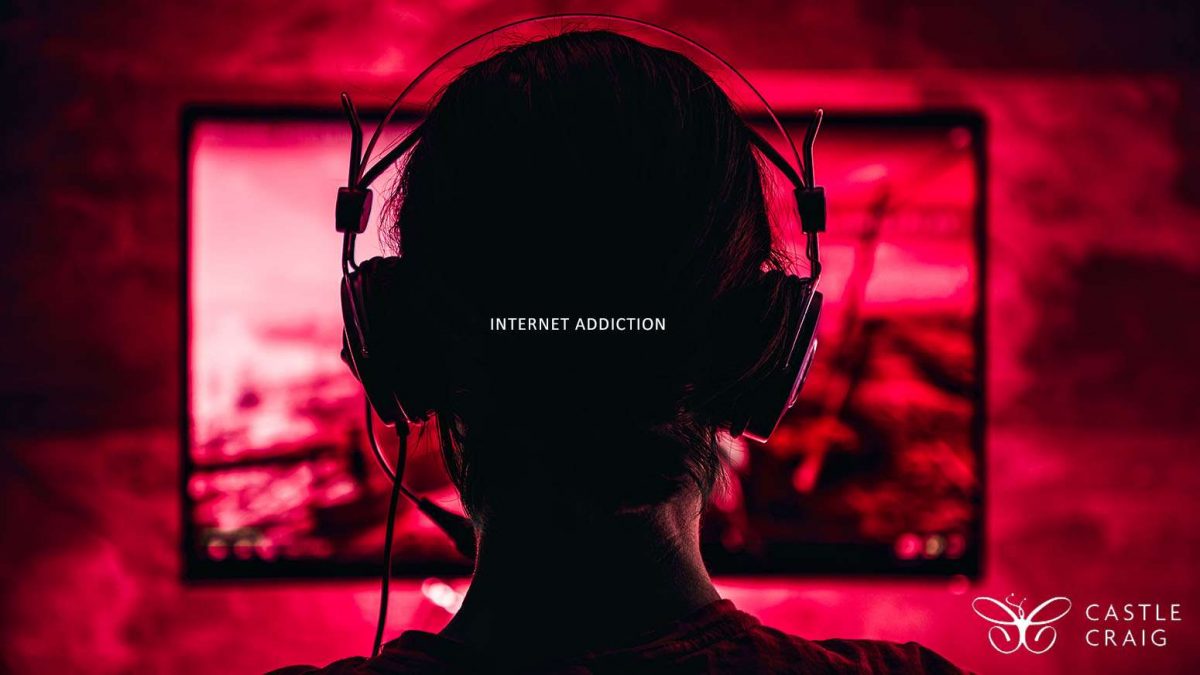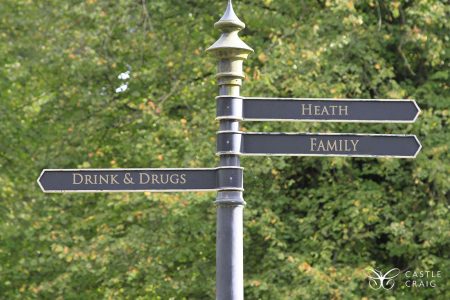Surfing or drowning?
It is not the internet itself but the many processes it supports that lead us into addiction. The negative consequences of most forms of compulsive behaviour found on the internet are serious, and many of us are at risk.
Ask yourself – do I have an internet addiction? If your response is to ask Google ‘what is internet addiction?’ then perhaps you should read this article carefully. How many hours do you really spend online? Are you surfing the internet or drowning?
We may not yet need the internet to directly support life itself but, in the Western world, this sometimes appears close to being the case. Certainly, we need the internet to make our lives manageable.
It is not a physiological need, such as we have for air, food, water and shelter but it comes next after those. It is undoubtedly a vital part of nearly everyone’s lives so, how can we become addicted to something we can barely live without?
What does internet addiction really mean?
So many addictive behaviours involve internet use that confusion arises when discussing internet addiction. Gambling, pornography, gaming, shopping, social media and dating are all compulsive behaviours with differing origins and constructs and all are widely practised on the internet. Then there is the phenomenon of workaholism, greatly exacerbated by Covid lockdowns, another internet-centred problem.
What is clear, however, is that ‘internet addiction’ per se is a misnomer and the internet is merely the medium whereby people become addicted to processes which it facilitates. As Professor Mark Griffiths of Nottingham Trent University put it: “internet addicts and smartphone addicts are no more addicted to the internet or their smartphones than alcoholics are addicted to bottles.”
Consequences
What matters is how we use the internet and how much. There is a parallel in the way we deal with food; normal consumption of this life-giving substance produces good results but when we over (or under) indulge, problems quickly appear. The internet is similar. Too much causes problems. Restricted use or even no internet at all, can also cause great difficulty. Addiction of any kind can be defined as behaviour that is continued despite negative consequences, and the kinds of compulsive internet use listed in the above paragraph certainly do that.
Diagnosis
Internet addiction is not a formally recognised mental disorder in Europe or the USA and does not feature in the Diagnostic and Statistical Manual of Mental Disorders (DSM V) although certain internet-heavy behaviours such as gambling have been included.
However, some professionals have used ideas taken from the DSM criteria for pathological gambling, which may be adapted to identify internet disorders as follows:
- Preoccupation with internet use
- Increased time spent online
- Repeated efforts to curtail use
- Irritability, depression and restlessness when internet use curtailed
- Staying online longer than intended
- Jeopardising work and relationships in favour of internet use
- Dishonesty concerning extent of internet use
- Using the internet to regulate mood.
There are also a number of multi-question screening instruments used which were pioneered by the late Dr Kimberly S Young in the USA.

Is internet addiction considered a serious problem?
We seem to be taking the internet for granted more and more. Some countries are worried, some less so. South Korea has declared it a national health problem, China is worried and has limited all children to three hours per week of video gaming.
In the UK, nearly everyone has access to a computer and in 2020, the average per person-hours spent on the internet weekly was around 25. That is roughly the same as average hours watching TV, but probably a lot more than time spent in the pub. So, should we be worried? The UK government does not seem unduly concerned about internet use addiction – it is more focused on eliminating dangerous content.
Who is most at risk?
Young people are most at risk of developing a disorder connected to excessive computer use. Although there may be regional variations, in general, it is adolescents (12-19 years) and emerging adults (20-29 years) who access the internet most. They are therefore at higher risk simply through usage. Other risk factors include:
- Interpersonal problems such as introversion and poor communication skills
- Poor social connections and isolation
- Psychological issues such as depression, anxiety and ADHD
- Poor parental skills and lack of suitable role models
- A lack of awareness as to how dependence and tolerance build up until a habit becomes an addiction.
However, as for most addictions, anyone can be at risk who uses the behaviour lengthily and habitually, especially if they have a solitary or unfulfilling lifestyle.
Warning signs
Internet use is so widespread that warning signs of excessive use often go unnoticed. If you are worried about your own or a loved one’s behaviour, here are some of the commonest warning signs to watch out for:
- Regular and lengthy sessions alone with a computer or smartphone
- Defensiveness or denial when asked about behaviour
- Preference for computer time over personal interaction
- Loss of outside interests – sports and hobbies
- Avoiding face to face socialising but seeking new online friends
- Increase in time spent on the internet
- Obsessional internet use and talking about use
- Deterioration in performance and responsibilities at work, school and home
- Legal, financial and social difficulties
- Health problems such as poor posture and obesity.
Response when internet addiction is evident
When negative consequences arise as a result of internet abuse, the response will partly depend on the precise nature of the problem behaviour. Thus, a gambling disorder requires a different response to say, a pornography or social media disorder. However, there are certain steps that are useful to take, whatever the specific problem behaviour:
- Discuss the perceived problem in a non-confrontational way with the person concerned and try to agree a goal to reduce or desist from the behaviour
- Recognise that total abstinence may be impractical but there are rules that can be established concerning computer time, control of money etc.
- Educate yourself on the problem and ways of addressing it
- Seek professional help
- Do not pretend the problem doesn’t exist or connive in covering it up for the sake of peace and quiet – it is always better to take action sooner rather than later.
Treatment options
Treatment may be through individual counselling, self-help fellowships such as Gamblers Anonymous, day-care attendance or residential treatment. It can often help to remove the person concerned from their home environment where it is difficult to make computers and smartphones unavailable.
Guidelines for avoiding internet addiction
Prevention techniques, especially for children at an early age, can be highly effective. For many well-meaning families, compulsive internet behaviour in late teens and early adulthood can be put down to ineffectual parenting routines (computer games are wonderful for keeping small children quiet while the adults are talking) or obsessive use of the internet by the parents themselves. A healthy lifestyle these days requires effort.
Children seldom play in the street or even walk far to school. Adults are not much better.
Sports and other leisure activities require not just planning but responsibility for our own well-being.
Many of us are conditioned to go for the softer, easier way and the internet gives us that. Responsible parents and adults themselves should work to establish an attitude where the internet is not the default destination for meeting every need. It is increasingly possible for people to live a large part of their lives in a meta-universe, away from the real world. This can often happen through a process of serendipity rather than as the result of a lifestyle choice. Countries are still trying to clarify the dangers or indeed the benefits, of doing so.
Negative consequences of internet addiction
The wide range of behavioural disorders embraced by internet addiction can produce serious negative consequences that are felt physically, mentally and emotionally. The near inertia experienced while spending hours in front of a computer often leads to weight problems, vision impairment, muscle wastage and carpal tunnel syndrome, but there are other consequences as well:
- Insomnia due partly to lack of exercise
- Depression and anxiety
- Social isolation and feelings of loneliness and low self-esteem
- Mood swings, particularly between listlessness and aggression, sometimes increased by activities such as gaming
- Feelings of despair and hopelessness (often the result of gambling or social media over-exposure) sometimes leading to suicidal ideation
- Poor planning and time management skills
- Withdrawal from normal everyday activities resulting in some cases, in agoraphobia
- Lack of personal health care and hygiene
- Legal and financial problems as a result of neglect of self and others, especially where children or loved ones are involved. Divorce or child-care issues are common.
Those feeling the effects of such consequences often struggle to find a practical response because of their isolation and low self-worth, putting them at even greater risk.
Reality check
Face reality honestly and ask yourself again: do I have an internet addiction? Time lost while on the internet may be a lot more than you think. You will likely meet some of the criteria for internet use disorder (doesn’t everyone?) and you may already recognise some of the consequences. Perhaps a better question would be: how severe is my internet addiction – how close am I to drowning?
Professional help
Professional advice can be particularly useful in identifying the exact nature of the problem of internet addiction so that the most suitable treatment options can be considered. At Castle Craig Hospital we see an increasing number of cases where excessive time on the internet is a major characteristic of addictive behaviour.
We are well used to assessing such situations so as to correctly identify the underlying nature of the addictive behaviour which might be for example, gambling, shopping or pornography). In this way, we can recommend and discuss the best possible response. Our staff are available 24/7 to help you.
To make an enquiry, 01721 546 263.
See Social media addiction and Castle Craig’s treatment.



